|
|
|
Clutter blindness is a condition that is all too common. Simply stated, it is the inability to see clutter and/or recognize it for what it is. When you're clutter blind, your life is often negatively impacted in some way as a result of clutter. Here is an example. A year or so ago I was helping a lady who was preparing to move to a much smaller home. She had recently lost her husband to a lengthy battle with cancer, she was basically being forced from her current home, and she was understandably feeling overwhelmed and adrift. During the two years that she served as her husband's caregiver, more and more of their home was gradually overrun with medical supplies, to include a large hospital bed which took up a significant portion of their dining room. As the medical supplies moved in, other things were forced to give up their space. There were piles of stuff literally everywhere. For many, many months she had simply been moving stuff aside and shifting things around because she lacked the physical and mental energy to deal with organizing and decluttering. I spent a morning helping her move empty boxes from the middle of her living room to the back bedroom (which was mostly empty). As we moved the boxes to their new location, we sorted and stacked them according to size so that she could easily identify what she had and find the perfect size box for her needs. We did little more than move boxes and consolidate a few storage containers on that particular occasion, but when we were finished, she exclaimed, "Wow! This place is clutter-free now!" Her statement surprised me. The room was obviously not clutter free. Every surface of the room was cluttered. Only the floor had been partially cleared. It was impossible to sit anywhere on the rather expansive sectional sofa without moving something out of the way. The same was true of every other piece of furniture in the room. What I came to realize later was that she quite literally could not see the clutter. To her it had become a part of the landscape of the room. It belonged there, in a sense. She was so used to it, that it no longer registered as clutter to her brain. This is what it means to be clutter blind. Because of the gradual way in which this "condition" develops, it can be difficult to "diagnose" it, particularly in oneself. Following are a list of "symptoms". Symptoms of Clutter Blindness
Curing Clutter BlindnessLike any chronic condition, clutter blindness takes time and effort to cure. There is no miracle pill or magic solution, but a shift in mindset accompanied by a series of intentional steps can cure a person of this habitual plight. As is the case in overcoming any persistent medical issue, consistency in following the prescribed treatment is essential to ensuring long term success. The solution outlined here will be most effective if followed in the recommended order.
If you are suffering from clutter blindness, you need help. You need someone who can see clearly what you are unable to see. You need someone who will offer support, encouragement, and accountability. You can turn to a family member or friend for assistance, but I strongly recommend seeking the services of a professional organizer in this case. Here's why:
If you live in the greater Kansas City area (Kansas or Missouri), contact me. I would love to help you! If you live elsewhere in the United States, you can start by doing a simple internet search, but I recommend going through the National Association of Productivity & Organizing Professionals (NAPO). To be featured on their site, professionals have to become certified, so you know they meet a certain standard and have a guaranteed degree of knowledge and experience. This is not true for sites like Home Advisor, Find My Organizer, and others. Just click on the Find a Pro tab to obtain a list of organizers near you. Another great resource for locating professionals is The Institute for Challenging Disorganization.
It's one thing to recognize you have a problem. It's even better to acknowledge that you need help, but until you are mentally committed to making changes in your home and your habits, you are wasting your time. That may sound a bit harsh, but it's true. Real, lasting success is dependent upon unwavering, lasting commitment. Overcoming clutter blindness isn't something you can wish away or fix with minimal effort. The effort involved here is akin to losing a significant amount of weight or getting in shape for a significant athletic competition. The half-hearted approach will not succeed. If you are truly committed, there are a few things you can do to ensure your success. MAKE A PLAN: They say that a goal is just a wish unless you write it down. I would add that a goal cannot become a reality without a plan. The goal is what you ultimately hope to achieve. The plan is your path to get there. Your plan should include the process you intend to implement. Consider the following:
UNDERSTAND THE PROCESS: Almost everyone recognizes a need to get organized, but most people don't really understand what that entails. Organization is a process. It starts with a vision for the space, whether it's a desk drawer, a closet, a room, or an entire home. To have success you must first define success. Otherwise, how will you know when you have achieved it? The next step in the process is to dismantle. In the case of an entire house, this means working in small sections. If you are clutter blind, it will most likely mean tackling one pile or clearing one surface at a time. As you break down the stacks of stuff, you should be focused on decluttering and downsizing. Identify the things you no longer need and set them aside for disposal. The things you intend to keep will then be sorted and organized. The final step is to maintain your newly organized space. This will require the development of systems or habits that will help you keep things functioning smoothly and prevent the accumulation of clutter. This is a lot to remember, so here are some resources to help you wrap your head around the process.
This quote from the Chinese philosopher Confucius is applicable when it comes to overcoming clutter blindness. When dealing with clutter people often feel overwhelmed and don't know where to start. The truth is, it doesn't matter where you start, only that you do. Pick a pile and go to work. When you finish with the first pile, move onto another, and just keep moving forward. Don't berate yourself if your pace is slow. Just keep plugging along. So long as you're progressing, you're succeeding.
Decluttering can be physically, mentally, and emotionally draining. It's tempting to cut corners or to set things aside to be dealt with at some future date. Resist the temptation. If you need to take a break and come back to something, that's great, but come back to it. Pick up where you left off after each session and don't abandon a particular aspect of the project until it's complete.
A system is just a method of doing things. When it comes to staying organized, it's useful to design systems that help you to maintain an organized space. I've outlined a simple procedure for designing systems. I call it the Three P's. You can read more about it here.
Labels are a great way to maintain organization once it's been established. Labels make it clear to everyone what goes where. They make it easy to find what you're looking for and easy to put things away. They also serve as a reminder that stuff has a designated space which can be important if you're used to piling things up instead of putting them away.
The concept of "resetting the room" comes from an IT developer named Oswald Nuckols, but I learned about it in James Clear's book Atomic Habits (affiliate link). It's something I've always done, but I had never put a name to it. The basic notion is to place things back where they belong before leaving a room so that when you return it's ready to be used for its intended purpose. One example provided by Mr. Nuckols is putting away the television remote, rearranging the sofa pillows, and folding the blanket after watching TV. These simple actions take seconds, but they make a big difference. The condition in which you leave a room impacts your mindset whether you realize it or not. For instance, some people will argue that it makes no sense to make the bed if you are just going to get back in it at the end of the day. What they don't recognize is that an unmade bed sends a visual signal that communicates a powerful message: it's OK to be messy. Whereas, a made bed makes you feel accomplished the moment your day has begun and conveys a sense of responsibility for and control over your space that extends beyond the bed to the room and even the entire house. If you can develop the habit of resetting the room after each use, maintaining order will become natural and habitual. Final ThoughtsYou won't find clutter blindness listed in The Diagnostic and Statistical Manual of Mental Disorders (DSM), but that does not make it less real. As an organizer I have encountered it on many occasions. It's something to take seriously. If you have any or all of the symptoms I've identified here, please know that there is a solution (or cure). You do not have to be a slave of your stuff. You can gain the upper hand and feel comfortable and at peace in your space. I hope you've found this information useful. If you know someone else who might benefit from the ideas expressed here, please share this post with them. I hope you will also feel comfortable sharing your thoughts on this rather personal and sometimes painful situation with me and my readers. I invite you to do so in the comments section below.
6 Comments
6/8/2020 09:54:15 am
This is a wonderfully detailed discussion, Sheri. I love having a name for the concept of resetting a room! For people who suffer with clutter blindness, the Institute for Challenging Disorganization (https://www.challengingdisorganization.org/) is another great resource for finding a Professional Organizer who's trained and understands clutter blindness.
Reply
6/8/2020 10:48:12 am
Sheri- I remember learning early on how differently people view clutter. Some see it and are overwhelmed by it. Some don't see it at all. And some are overwhelmed by what I view as "invisible clutter." Challenges with clutter can be related to one's ability to make choices or sentimental attachments to our belongings.
Reply
6/8/2020 03:49:26 pm
I haven't heard this phrase before but it ties in with other things I've experienced. e.g. Many years ago I removed the baseboard to paint my kitchen and never got around to replacing it until we were preparing to sell the house. I didn't even *see* that there was no baseboard. It's the same reason you need to change the pictures on your wall from time to time - after a while you don't even notice them.
Reply
Leave a Reply. |
Archives
November 2022
Categories
All
|
Proudly powered by Weebly
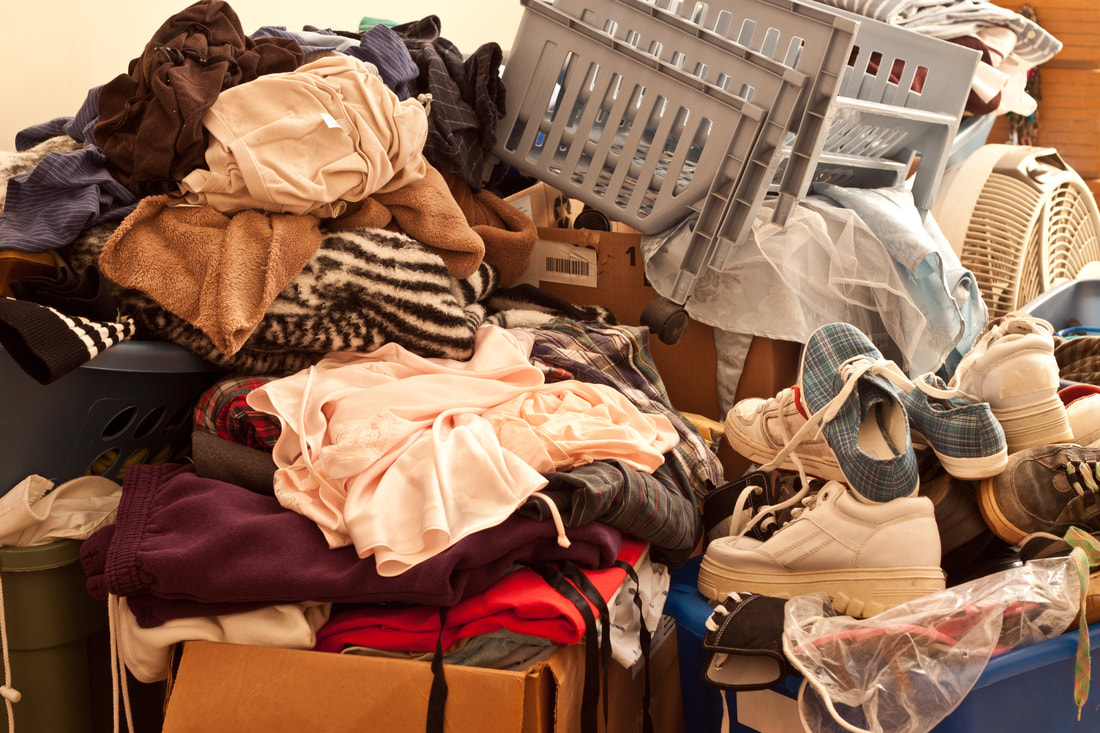


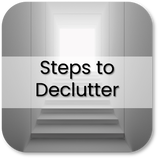
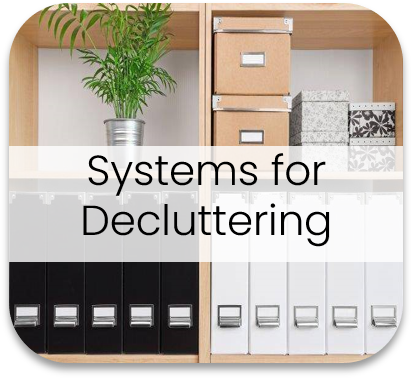
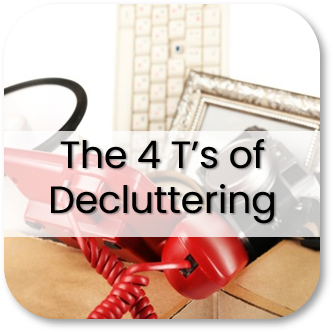
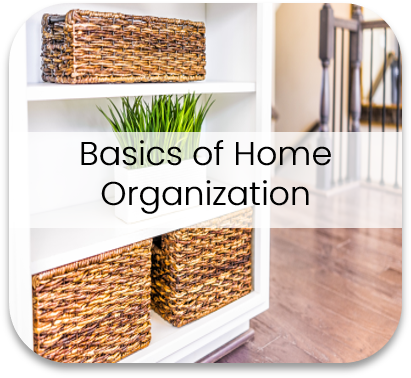
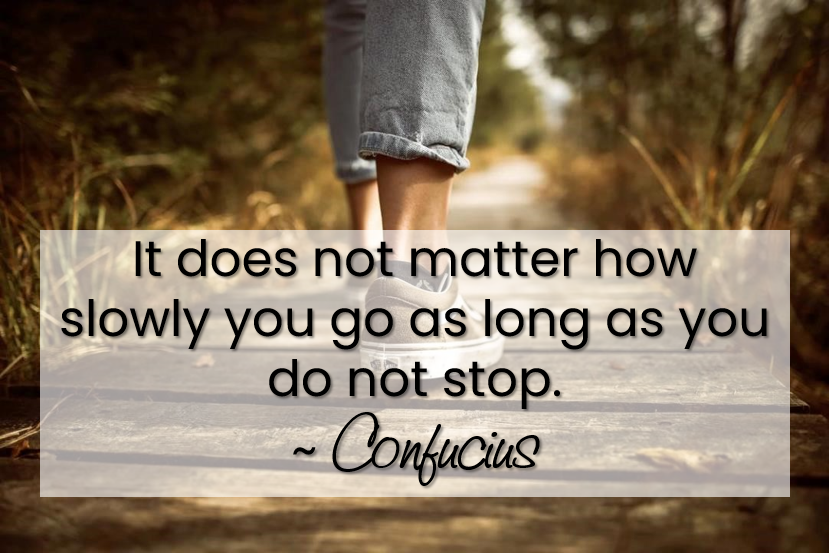

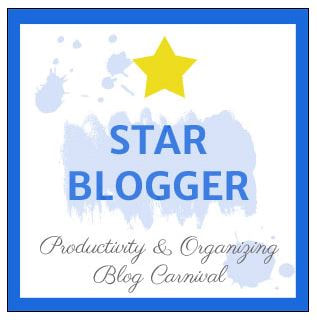
 RSS Feed
RSS Feed